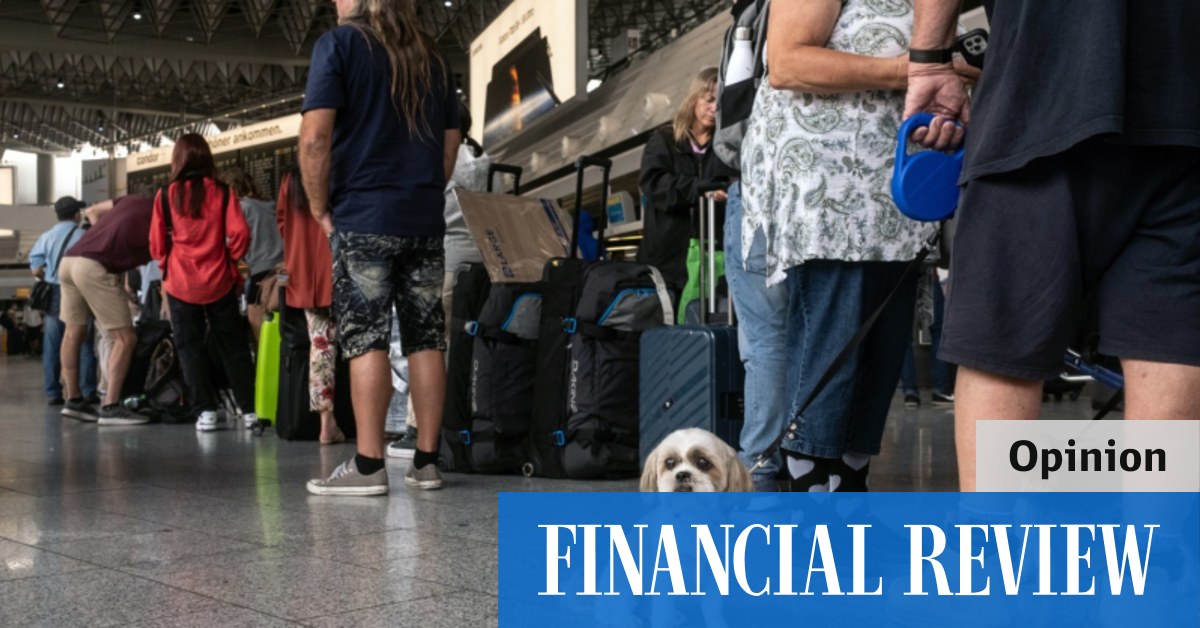This thought came to mind last week as I stood in a long queue at a small Spanish airport, where I saw something I had never seen in more than 30 years of flying.
The line was full of people boarding two flights to London, one to Gatwick, which I was on, and one to Stansted, both due to leave at about 11am. We were queuing to get our passports stamped, as one does post-Brexit, just a few meters from exit doors beyond which waiting plans were clearly visible.
As the clock ticked towards 11 o’clock and fears of closed gates grew, a ruckus broke out at the front of the queue. Passengers bound for Stansted, including parents who had been queuing for ages with toddlers in tow, started shouting at an airline attendant for not calling them to the front of the line earlier.
All at once, several barged past the passport station and made a break for the exit. A burly policeman bolted out of the station and ordered everyone to stay put. The would-be escapees returned, forlorn, reporting the gate had closed, and they had been left to book new flights, with no airline help in sight.
This was just one small drama among the thousands that have turned flying into a chaotic hellscape of canceled flights, lost luggage and unspeakable queues across the world this year.
The pandemic staff shortages and supply chain glitches driving this upheaval are less visible than the Icelandic volcano ash and 9/11 terrorist attacks that caused past air travel woes, but they are just as troubling.
Last week, bosses at Heathrow airport and Qatar Airways warned industry disruption could last a lot longer than expected. “I think that it will last for a couple of years,” Qatar Airways’ chief executive, Akbar Al Baker, told the FT.
Predictably, a cottage industry has emerged to advise travelers what to do. Some tips are obvious: prepare for queues; fly direct; take only hand luggage and if you must check bags, bring medicine and other necessities with you in the cabin.
Some ideas seem daft: you can check your bags the evening before an early morning flight with some airlines and a lot of experts recommend it, on the grounds you can sail through calmly the next day. But it requires an extra trip to the nightmare that is today’s airport.
Other advice was new to me. It’s best to fly as early in the day as possible because first flights are rarely cancelled, a flight attendant wrote in New York Times the other week.
Later flights are more vulnerable to thunderstorms that build as days get warmer, plus rising traffic at busy airports and flight crews reaching duty limits.
For what it’s worth, my brush with summer travel has taught me this: it’s more important than ever to fly on weekdays if you can.
If you are in a long queue, do not be afraid to ask staff to take you to the front of the line if it is getting close to boarding time.
Finally, be pleasant to those staff. Most are doing their best on the front lines of a bleak situation they cannot avoid. You, with luck, are only passing through.
Financial Times
